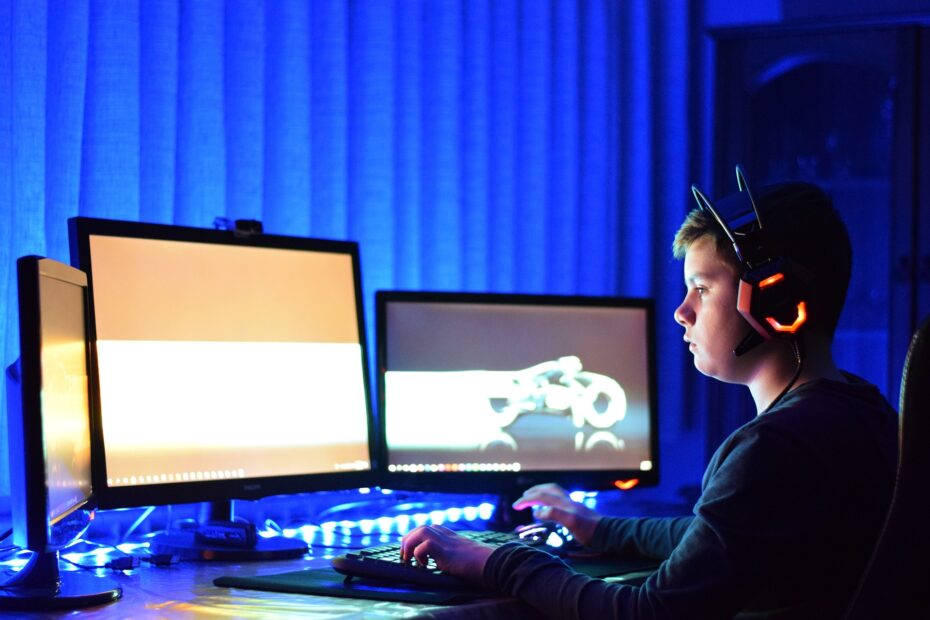As we all know, we're now well advanced collectively in the digital transformation of our economies, production methods, social interactions and teaching methods, among others. In concrete terms, this has led to a proliferation of screens and concerns about the harmful effects of blue light on our eyes. As opticians, it's hard not to feel challenged by this issue. Let's take a closer look.
Glasses and Blue Light
Blue light filters have been available for some years now as an option when purchasing corrective lenses. Blue-light filtering options are also available on various work or browsing platforms via your cell phone, tablet or computer. The question now: is it effective? Some scientific studies contradict each other and it's sometimes difficult to find one's way through these contradictions. Recently, le Scientifique en chef du Québec even went as far as publishing a Science-Presse article raising doubts about these kinds of glasses.
First of all, it's important to understand that blue light is not harmful. In fact, it's essential to life and to the proper functioning of our bodies. The biggest emitter of blue light is unquestionably the sun.It stimulates and awakens the nervous system. However, people who find it uncomfortable to work for too long in front of a screen won't solve the problem with blue-light-filtering glasses (any more than by using the options provided by your screens).
Could it be that these problems are the consequence of the claustrophobic effect of limiting your universe to your screen, 25 centimetres in front of you? In other words, could it be that we're not biologically made for this?
Blue Light and Sleep problems
For better sleep, it's generally recommended to limit the use of screens in the two hours before bedtime. Why? Because blue light excites and stimulates the body. Before bedtime, it's obviously not a good idea. Our internal cycle is linked to the sun during the day and the darkness at night. Without realizing it, our circadian rhythm changes according to the light we're exposed to. Everyone knows that it's easier to fall asleep in the dark than in the light, but the body needs a longer transition time than that required to turn off the lights or screens.
Do we recommend glasses with filters?
The answer is: not always. Yes, if you use your screens a lot in the evening and your devices don't provide the integrated filter option. But we don't always recommend it. Simply because there's a simpler, less expensive solution: limit your screen time (especially in the evening) and spend some time outside! Several studies confirm this.
Ultimately, our goal is to offer you the best service you can afford. So we'll never prevent you from adding the option if you want it. There will be a a little extra on the price, but it will be your decision, made with full knowledge of the facts!

